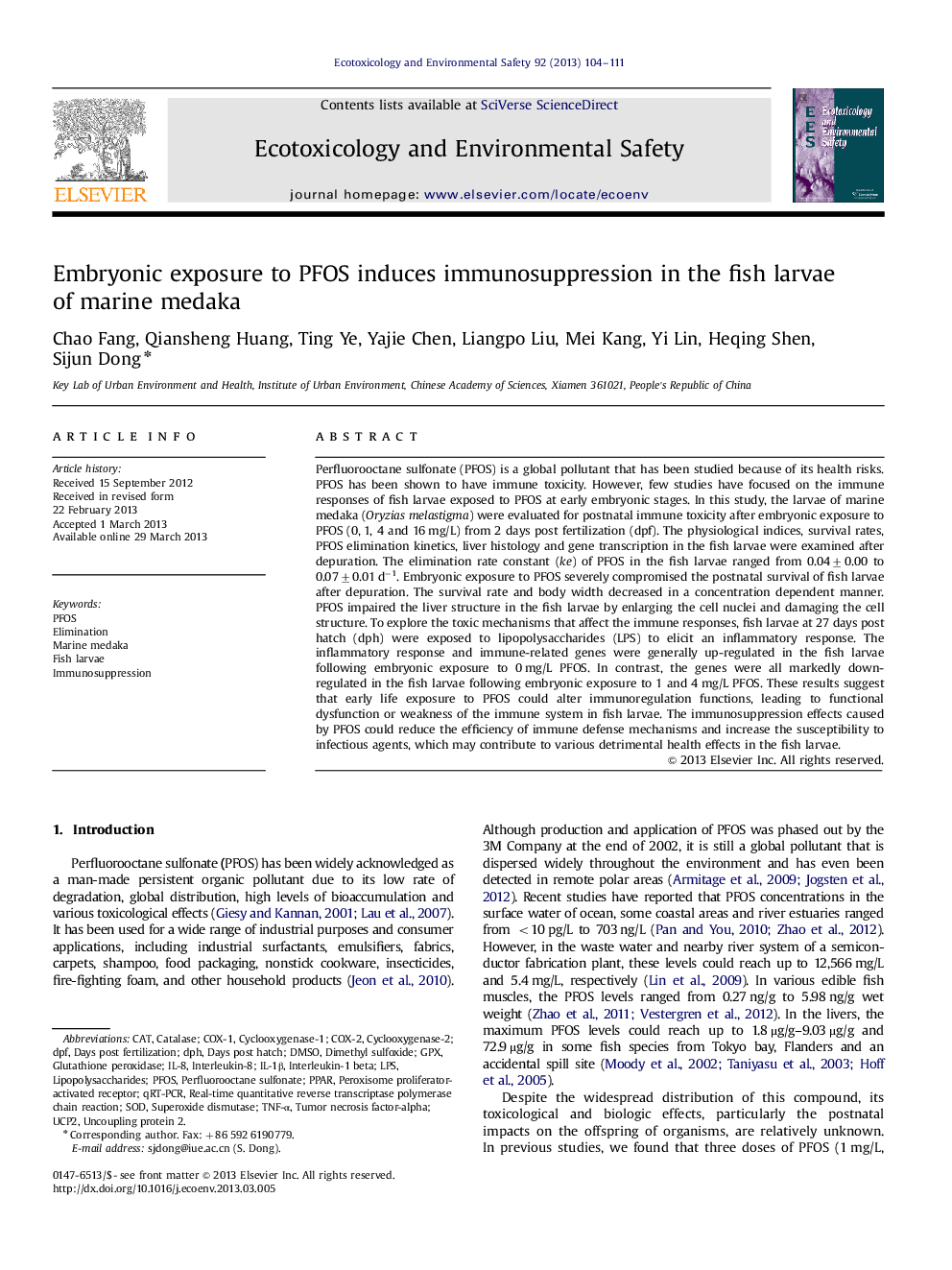| کد مقاله | کد نشریه | سال انتشار | مقاله انگلیسی | نسخه تمام متن |
|---|---|---|---|---|
| 4420439 | 1618971 | 2013 | 8 صفحه PDF | دانلود رایگان |

• The immunotoxicity of PFOS in the fish larvae of marine medaka was investigated.
• The elimination rate constant of PFOS was slightly higher in the marine medaka.
• PFOS induced a variety of detrimental health effects in the fish larvae.
• The immune. process was altered in the fish larvae after embryonic exposure to PFOS.
Perfluorooctane sulfonate (PFOS) is a global pollutant that has been studied because of its health risks. PFOS has been shown to have immune toxicity. However, few studies have focused on the immune responses of fish larvae exposed to PFOS at early embryonic stages. In this study, the larvae of marine medaka (Oryzias melastigma) were evaluated for postnatal immune toxicity after embryonic exposure to PFOS (0, 1, 4 and 16 mg/L) from 2 days post fertilization (dpf). The physiological indices, survival rates, PFOS elimination kinetics, liver histology and gene transcription in the fish larvae were examined after depuration. The elimination rate constant (ke) of PFOS in the fish larvae ranged from 0.04±0.00 to 0.07±0.01 d−1. Embryonic exposure to PFOS severely compromised the postnatal survival of fish larvae after depuration. The survival rate and body width decreased in a concentration dependent manner. PFOS impaired the liver structure in the fish larvae by enlarging the cell nuclei and damaging the cell structure. To explore the toxic mechanisms that affect the immune responses, fish larvae at 27 days post hatch (dph) were exposed to lipopolysaccharides (LPS) to elicit an inflammatory response. The inflammatory response and immune-related genes were generally up-regulated in the fish larvae following embryonic exposure to 0 mg/L PFOS. In contrast, the genes were all markedly down-regulated in the fish larvae following embryonic exposure to 1 and 4 mg/L PFOS. These results suggest that early life exposure to PFOS could alter immunoregulation functions, leading to functional dysfunction or weakness of the immune system in fish larvae. The immunosuppression effects caused by PFOS could reduce the efficiency of immune defense mechanisms and increase the susceptibility to infectious agents, which may contribute to various detrimental health effects in the fish larvae.
Journal: Ecotoxicology and Environmental Safety - Volume 92, 1 June 2013, Pages 104–111